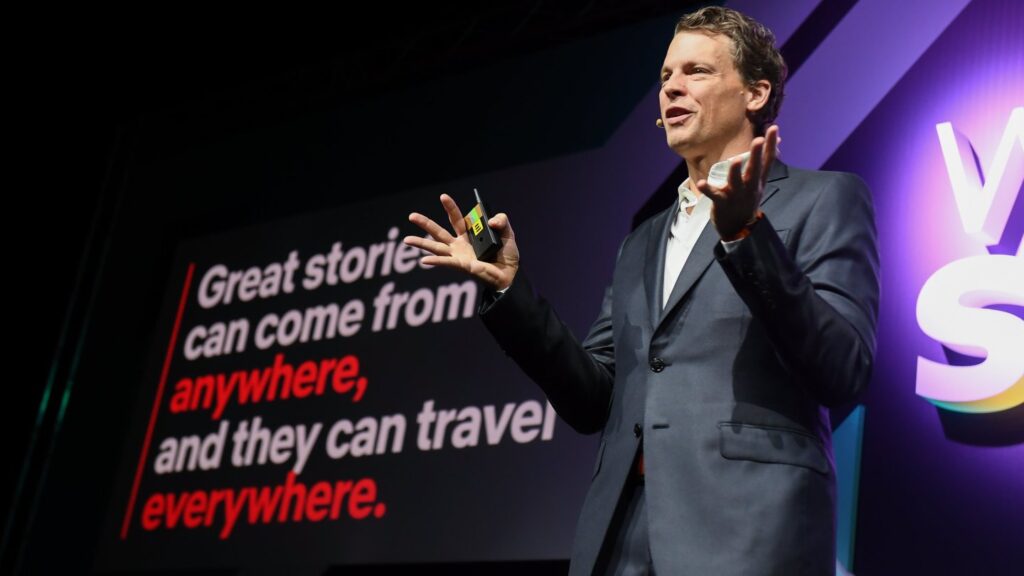The NFL may be the biggest event show on television, but Netflix thinks it has something to contribute, too.
Netflix co-CEO Greg Peters touched on several Netflix-related topics at a Financial Times conference on Friday, including the use of artificial intelligence in the entertainment industry and Netflix’s expansion into advertising, which he oversees.
And then, of course, there’s live sports, which is always an area of focus for Netflix: Regarding the NFL, Peters said the company views it as a standalone event rather than a regular feature (“For one day, football will be on Netflix,” he said), suggesting the streaming giant plans to approach NFL games a bit differently than other rights holders.
“We’re going to make them a little bit Netflix-esque,” Peters added, “so we’re going to have a little bit of gaming stuff with our talent, and I think that’s going to be a lot of fun.”
And it’s worth noting that Peters didn’t rule out the possibility of Netflix expanding its sports portfolio.
“We’d love to do that. It’s great. And we want to do it in a way that works for business, which is usually a tough deal to make,” Peters said, adding, “Never say you can’t do it, be open-minded and think creatively about how to do it, and we’re certainly pushing the envelope.”
In fact, “never say never” applies pretty neatly to Netflix’s approach to advertising: The company made it clear it wanted to stay out of the ad business until then-CEO Reed Hastings surprised Wall Street by announcing plans to get into advertising on an earnings call.
Peters said the decision was made in haste during the pandemic, which led to initial accelerated subscriber growth that has since stalled.
“We realized that we’d brought in two years’ worth of growth in the last two quarters, and that had stalled,” Peters said. “So we were in a situation where everything we had planned for the next two years now had to be done. And there’s nothing like a pinch of urgency to get the decision-making machinery of the company a little more tightly focused. So we quickly decided, OK, it’s time to get to advertising, and we’re going to do it as quickly as possible.”
He also contrasted Netflix’s slow and steady approach with that of Amazon, which began advertising to all Prime Video subscribers earlier this year and flooded the market with inventory.
“Amazon entered the market in a pretty aggressive way,” Peters said with a smile. “My general sense is that they’re an advertising company. It’s a core part of their DNA. So their mindset is advertising, and they have the option to acquire if they want, but really, advertising first. And very similar to Amazon, they said, their motto is, ‘Your margin is my opportunity,’ and they went in and basically said we’re going to drop to the bottom and start competing from there. And that’s their strategy.”
“We’re not matching that, because I don’t think that’s our proposition,” he continued. “Our proposition is that we own some of the most important titles at any one time from a social and cultural perspective. These are the titles that our brands and advertiser partners want to be next to. They want to be part of that social conversation. So we want to be anchored at the top of the market in that respect, and we’re committed to building that as well.”
Peters also spoke about generative artificial intelligence, saying he was “excited” about its potential, but that it may not be the instant game-changer that some make it out to be.
“For those of us who are actually using the technology, I would say we’re past the hype period in the technology adoption cycle,” Peters said, “and now the people who are actually using it are realizing that taking it from demo to actually large-scale production and getting it to something that works with high quality is a lot of work and it’s going to take longer than they think it’s going to take.”



